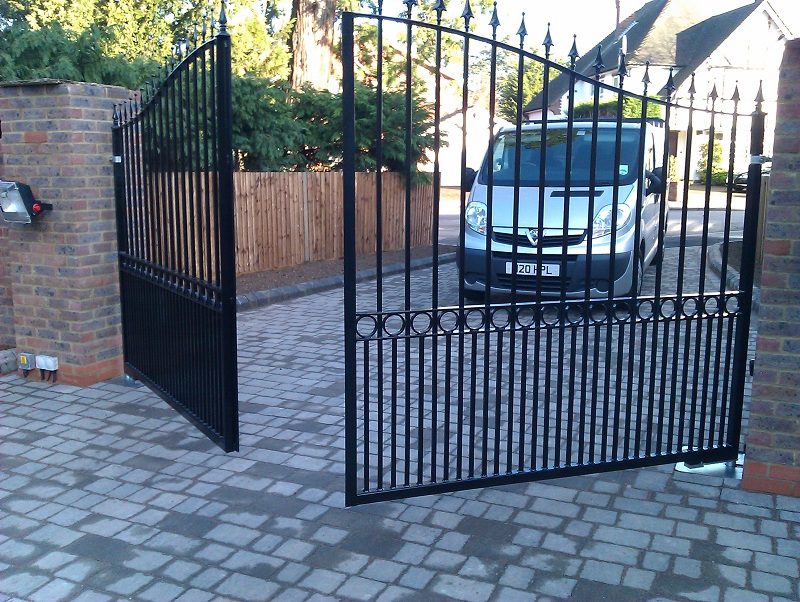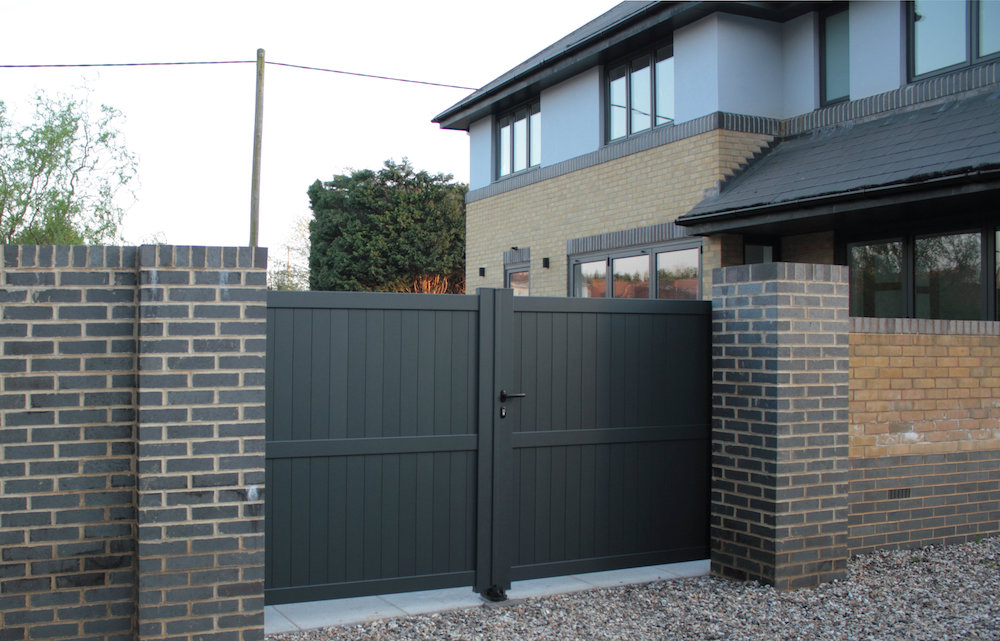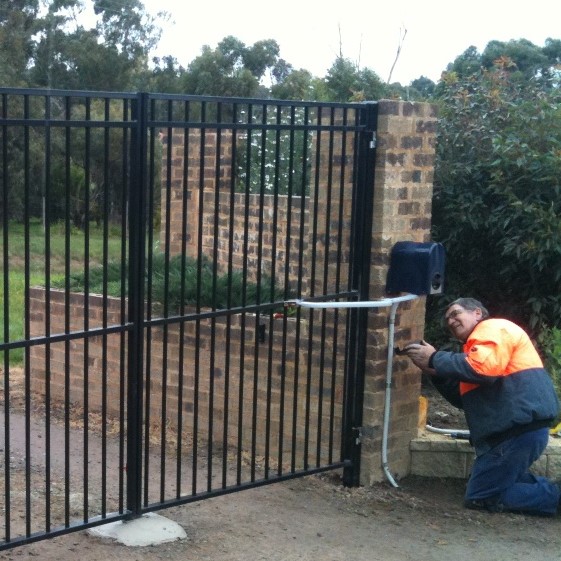-
Your shopping cart is empty!
Menu

When you’re costing up electric gates for your home there are four elementsto consider:
If you'd like us to provide deatils of qualified and trusted gate automation installers in your area, click here.
The cost of gates varies significantly based on gate material, styles, size and design. Larger gates cost more than smaller gates of the same design and made of the same material. Generally, softwood gates are cheapest but require a lot of maintenance and don’t last long. Hardwood gates are more expensive and last longer than softwood gates but still require regular maintenance. Aluminium gates are comparable in price to hardwood gates and need no maintenance. Ornate iron gates are usually the most expensive.
The more ornate the style, the more expensive your gates will be and non-standard finishes and colours will add to the cost of new gates.
Swing gates are usually more expensive than sliding gates as there are two of them instead of a single sliding gate. Linkcare supplies two swing gates joined to make a single sliding gate that still looks like two swing gates. The advantages here include the cost of installation as described below.
If you'd like us to provide deatils of qualified and trusted gate automation installers in your area, click here.
Electric gate installation costs are determined by groundworks and type of gates. Groundworks include pillars, posts and underground motor installation and drainage provision.
You might think that sliding gates would be the cheapest to install as there's only one gate and one motor. However, track needs to be laid for the motor to move along and this can require digging up the driveway. In the end, the groundworks can make these simpler systems just as expensive to install as swing gates.
With swing gates, rams are slightly more expensive to install than articulated arm motors as careful alignment is required with the former.
More cost is added when underground motors are chosen. These require careful alignment as the motor forms the bottom gate hinge. They also require holes in the ground for mounting and drainage. Without provision for sufficient water drainage, motors can remain submerged in water which will cause them to fail. In-post systems are usually the most expensive and have to be installed with the gate pillars or posts.

If you'd like us to provide deatils of qualified and trusted gate automation installers in your area, click here.
Generally speaking, gate automation systems increase in costs in the following order:
If you'd like us to provide deatils of qualified and trusted gate automation installers in your area, click here.
Electric gates don’t use much electricity and their running costs will depend on how much they are used.
In standby, an electric gate system will use about 100 watts per day. With electricity costing around 15p per KWh this translates to 1.5p per day.
When the gates are active they will be using up to about 700W, but this is only for about 20 seconds in each direction so this will add about 0.2p to your electricity bill for each cycle of the gates. An average set of domestic gates open up to 15 times a day which would around 3p based on the prices quoted above.

So, over an entire year, the electricity cost for gates opening up to 15 times a day (Which is quite a lot) is likely to be in the region of £15-16.
If you'd like us to provide deatils of qualified and trusted gate automation installers in your area, click here.
Larger costs will be incurred from maintenance visits. These will vary depending on your gate system and how far away your chosen gate engineer is. Sufficient maintenance to ensure reliable operation and a long life for your electric gates is likely to be around £150 - £300 per year.
Some companies will offer just a basic cost for a maintenance visit to check the system and then quote for any remedial works as required. Other companies may offer a comprehensive maintenance/guarantee contract which would include replacement parts, but these will be substantially more expensive.
Most electric gate system manufacturers offer a guarantee on their equipment from new. This encourages you to use installers who buy from reputable sources in the UK so that these guarantees are honoured. When you check this with your gate engineer, also check that their labour is included as part of the guarantee they give you.

If you have any questions about gate automation, please call Linkcare on 01895 232 626 or visit the contact page.
If you'd like us to provide deatils of qualified and trusted gate automation installers in your area, click here.
5 Comment(s)
How muc to supply and fit metal electric gates
Amazing article! Thanks for posting about how much do gate cost. It will now be easier for many to look for the best companies that can help them with their gate and of course they now know how it cost.Thanks for sharing info.
There is a conceptual error when you write ” In standby, an electric gate system will use about 100 watts per day.” Watt is a unit of power, and what the system consumes is energy (watt-hour). This same mistake appears in every webpage explaining this topic, what make me assume most are copies of other.
Hi. Regarding your calculation "When the gates are active they will be using up to about 700W, but this is only for about 20 seconds in each direction so this will add about 0.2p to your electricity bill for each cycle of the gates. An average set of domestic gates open up to 15 times a day which would around 3p based on the prices quoted above". How do you arrive at the 0.2p calculation for the electricity cost for each cycle of a gate opening and closing??
Hello Jeff Thank you for your comment. The cost calculated was a rough calculation to show that running an automated gate is inexpensive. In this example, the system will use 700 W for 20 second during the opening and 20 second during closing for the motors and the control panel 100W. A total of 800 W for 40 seconds 800W is 0.8 KW 40 second is 0.011 hour The system for a cycle will use 0.009 KW/h. The running cost may have been over exaggerated when the blog. The current cost will depend on your current contract with your energy supplier. I would estimate it at between 0.2p and 0.3p per cycle
Leave a Comment